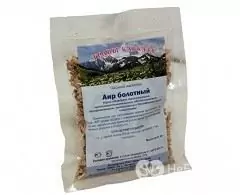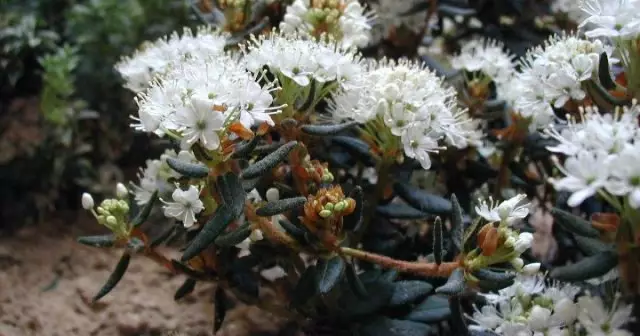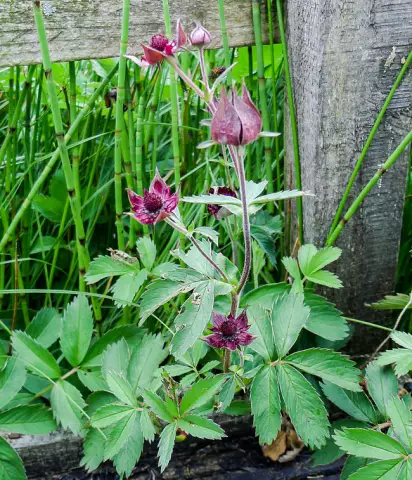- Author Rachel Wainwright wainwright@abchealthonline.com.
- Public 2023-12-15 07:39.
- Last modified 2025-11-02 20:14.
Calamus swamp
Instructions for use:
- 1. Chemical composition
- 2. Useful properties
- 3. Indications for use
- 4. Contraindications
- 5. Home remedies

Calamus marsh has a beneficial effect on digestion and reduces gas formation in the intestines. In addition, the plant has anti-inflammatory, antispasmodic, choleretic, diuretic, disinfectant, expectorant and vasodilating effects.
Chemical composition
The rhizomes and leaves of the plant contain an essential oil, the main component of which is asarone, a phenylpropane derivative. In addition, calamus contains the following substances:
- Bitter glycoside acorin;
- Glucoside lucenion;
- Bitterness of acoretin;
- Calamine alkaloid;
- Tannins;
- Resins;
- Starch;
- Choline;
- Vitamins;
- Iodine.
Beneficial features
A decoction of calamus root relieves intestinal colic, helps with diarrhea, stomach diseases, poisoning, heartburn. It is also used to improve liver function, excretion of bile. The decoction can be used to rinse your mouth and throat to treat inflammation in the mouth, eliminate bad odor and toothache.
It is recommended to drink an infusion from the leaves or root of a plant for diseases of the liver, bile ducts, and gall bladder. It is effective as an antipyretic and expectorant for asthma, bronchitis, pulmonary tuberculosis, pneumonia. In addition, an infusion of leaves and roots is drunk to reduce blood pressure, it helps with palpitations. The use of calamus marsh in the form of an infusion is also indicated for violations of the menstrual cycle and inflammation of the female genital tract.
The crushed root of the plant in its pure form is taken to improve sexual function, relieve seizures, treat neurasthenia, hysteria, mental disorders. Powder from the root can be poured onto festering wounds and ulcers to accelerate healing, since one of the healing properties of calamus is the ability to have a pronounced antiseptic effect.
The juice squeezed from fresh leaves helps with eye diseases: retinal detachment and inflammation, deterioration of visual acuity. The juice is instilled into the eyes, after diluting it with water.
Indications for use
In traditional and folk medicine, calamus is used for the following diseases:
- Chronic gastritis;
- Chronic cholecystitis;
- Biliary dyskinesia;
- Dyspeptic disorders of various origins;
- Anorexia;
- Gum disease;
- Tonsillitis;
- Articular rheumatism.
Contraindications
The use of calamus marsh is contraindicated during pregnancy, with high acidity of gastric secretions, nosebleeds, acute inflammation in the kidneys, exacerbations of gastrointestinal ulcers.
Plant preparations tend to lower blood pressure, which should be taken into account for hypotensive patients.
May cause vomiting in high doses.
Home remedies from calamus marsh
The healing properties of calamus are widely used in folk medicine. The plant is used in the form of tinctures and decoctions from leaves and roots, internally and externally.
For the preparation of the broth 3 tbsp. l. chopped root is poured with 500 ml of boiling water and boiled for 30 minutes. It should be taken 100 ml 4 times a day.
A decoction for taking a bath is prepared as follows: 300 g of roots and leaves are poured into 5 liters of water, boiled for 5 minutes, and then infused for an hour.
For preparation of infusion on leaves of calamus marsh 1 tbsp. l. raw materials are poured with 200 ml of boiling water and insisted for 30 minutes. Take the remedy for 1 tbsp. l. 3 times daily before meals.
Tincture of the plant with alcohol is prepared as follows: 1 tbsp. l. roots are poured with a glass of vodka and insisted for at least 7 days. Take 10-15 drops after meals, mixing with water.
Information about the drug is generalized, provided for informational purposes only and does not replace the official instructions. Self-medication is hazardous to health!






